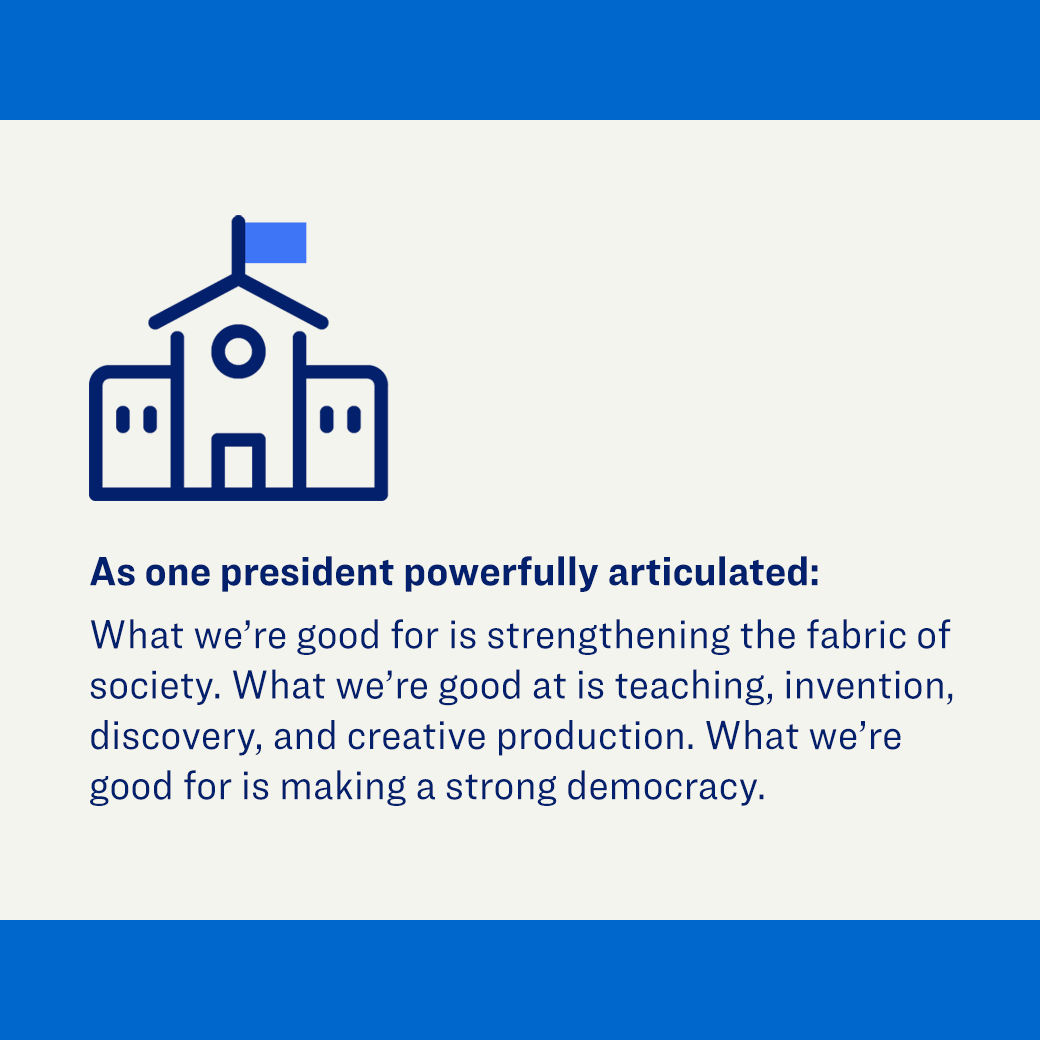The TIAA Institute explores how college and university presidents are navigating a confluence of challenges while reassessing their institutions' societal impact and democratic engagement in an increasingly polarized landscape.
Summary
This research examines how higher education leaders, primarily from small to medium-sized private institutions, perceive their universities' roles during a period of profound change. Through interviews with 15 college and university presidents conducted in April-May 2025, the study explores what universities are "good for" and "good at" while considering environmental, social, and governance factors. The interviews reveal institutions are doubling down on their missions while facing significant challenges including financial pressures, demographic shifts, and growing anti-higher education sentiment. Presidents emphasized higher education's critical role in strengthening democracy, enabling social mobility, and serving as anchor institutions in their communities.
Key Insights
- Mission-centered leadership provides stability during turbulent times, with institutions emphasizing their founding values and community engagement.
- Higher education institutions are reclaiming their roles as anchor institutions in local communities, shifting focus from national prestige to regional impact.
- Presidents express urgent concern about the "broken" financial model in higher education, particularly for tuition-dependent institutions.
- Universities serve as modern public squares vital to democracy, providing spaces for civic engagement and democratic discourse.
- Coordinated action across institutions is needed to effectively communicate higher education's value as both a public and private good.




